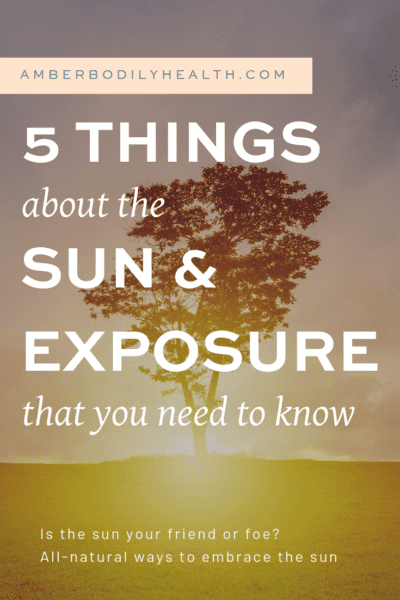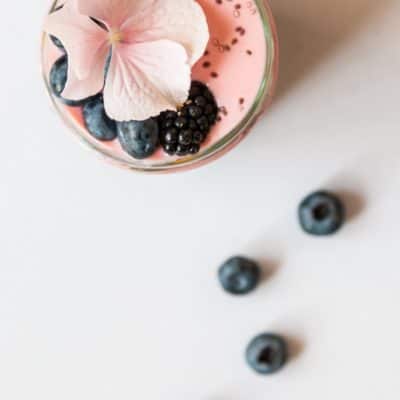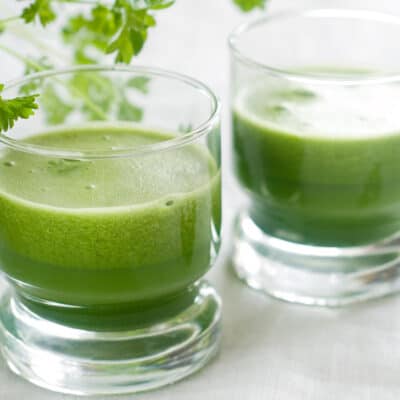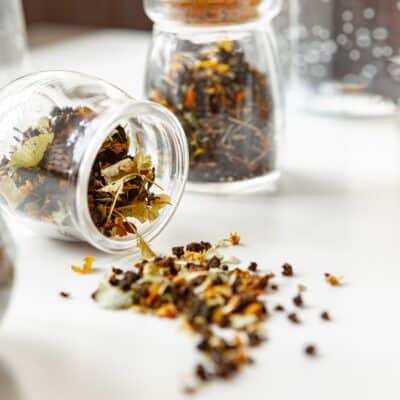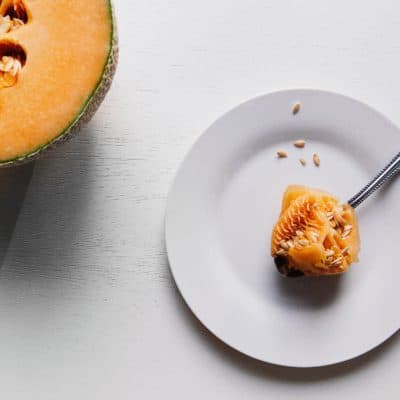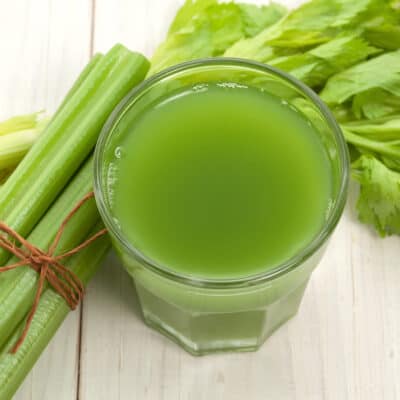Summer is coming! Warm weather means your part of the earth is inviting in more warm sunshine. This is also the time of year that large tower displays of sunscreen show up in stores and warnings about skin cancer circle the media. But exactly how bad is sun exposure for your health – and how much is good for you?
SUN EXPOSURE: FRIEND OR FIEND?
Most of us have experienced sunburn at some point in our life – and all of us have heard that too much sun causes skin cancer. We will unpack that in a little bit, but let’s first re-examine the very thing that is accused of these maladies. The sun provides light and life on earth. It is essential for plants and other organisms to grow and thrive – and for humans as well. We’ve heard about the fiery, fiendish nature of the sun – but there are also many ways the sun is our friend, rather than our foe.
Provides nutrients
Did you know the sun imparts hundreds of nutrients to you through its rays? Science has only been able to detect one so far, but there’s much more than Vitamin D in that sunshine. These nutrients are constantly shifting and changing, but a large amount of nutrients you get from the sun help nourish the body and balance hormones. These nutrients also support the blood, which in turn nourishes the circulatory organs and the skin.
Enhances nutrient absorption
The sun strengthens and enhances every nutrient you consume. Even getting a little direct sunlight onto your skin goes a long way! You can think of the sun as a powerful multivitamin, invigorating each vitamin and minerals to maximize its potential for your body. If you aren’t used to getting much sun, starting with small amounts in the morning or evening is beneficial – then slowly increase your time in the sunshine, taking care not to burn.
Detoxes the liver
The minerals and nutrients that come from the sun activate a cleansing effect in the liver. There are a few dozen minerals and vitamins that we get from the sun naturally that stimulate this detox process. These nutrients also help nourish the liver, allowing it to operate more efficiently in the body. Read more about the liver and how to support it here.
Prevents and heals disease and cancer
Wait, what? Yes, you read that right. Research shows sunlight can protect from a variety of diseases, including many common cancers, type 1 diabetes, rheumatoid arthritis, and multiple sclerosis. In fact, avoiding sunlight can lead to the onset or worsening of disease, and increase any cause of death (all-cause mortality). Sun exposure has benefits for the cardiovascular system aside from getting vitamin D, including lower blood pressure and arterial vasodilation. Receiving regular rays decreases breast and colon cancer growth and is associated with substantial death rate decreases from these cancers. Although frequent sun exposure can cause cancers that have a 0.3% death rate per year, it also prevents cancers with 20-65% death rates per year in the U.S. It is estimated that 30,000 U.S. cancer deaths yearly would be avoided by regular, moderate sunning. For cancer patients, sun exposure is notoriously healing: this study is one of many that showed that sunlight exposure reduced stress, pain, medication use, and pain medication costs for cancer patients.
Regulates sleep/wake cycle
Your body has a circadian rhythm, or a natural cycle of sleeping and waking, that helps certain functions in your body. There are certain processes your body does while you are awake and while you are asleep. Research shows that not just any light, but particularly the sun is the predominant factor for regulating your circadian rhythm. (If you’re hoping that the fluorescent lights at your workplace might replace the sun, think again.) If you don’t get out into the sun, your internal clock and bodily processes can become unbalanced – and a 2009 study even shows that less sunlight is linked to lower cognitive function. (See more sleep tips here.)
Boosts mood
Research shows that sunlight boosts the production of serotonin in your body. This bodily chemical not only stabilizes your mood, but it also can help regulate depression and anxiety, heal wounds, and regulate sleep/wake cycles. Exposure to sunlight is associated with increased vitamin D levels, which are known to benefit mood, especially in the winter months. In particular, I encourage you to watch the sun rise and/or set. This stunning display of nature is such a gift, and can shift your mood entirely and heal your spirit.
We have been taught to have so much fear around the sun, but why would a loving universe give us something so harmful? Without the sun, there is illness. Soil are no longer enriched, plants can’t grow, our bodies and minds don’t function well – we need sunlight. Many cultures around the world worship the sun. Since the science and spiritual realms both argue for us to seek sunlight, rather than avoid it – what is the best way to protect ourselves from over-exposure?
HOW TO GET SMART ABOUT THE SUN
Melanoma, the most serious of skin cancers, has a paradoxical relationship with the sun. Research shows us severe sunburn can cause melanoma, yet that long-term and regular sun exposure prevents it. So how to avoid that severe sunburn? Hint: sunscreen is far from the only answer.
Research your sunscreen.
The promise of avoiding sunburn and skin cancer is marketed heavily on sun protection products, but what isn’t publicly known is the toxicity of the ingredients in them. When more closely examined, many of the ingredients in these products have been shown to cause cancer, disrupt hormones in both men and women, cause allergic skin reactions, affect birth weight, and more. What’s worse, mixing ingredients with other chemicals can cause more concern: a 2017 study found a common sunscreen additive, when mixed with chlorine, becomes highly toxic and even carcinogenic – so wearing sunscreen while in the pool might not be such a good idea anymore. A great tool is the Environmental Working Group’s database via their website or app – just scan or search a brand of sunscreen, or view their recommended low-toxicity brands.
A note about sunscreen and cancer/melanoma:
The research about sunscreen preventing skin cancer is, at best, inconclusive. However, the incidence and mortality rates of melanoma have slowly been rising worldwide over the last three decades. Interestingly, the increase of sunscreen products parallels this trend. It has been hypothesized that the 17% increase in breast cancer incidence during the 1991–1992 year may be the result of the past decade of pervasive anti-sun advisories from respected authorities, coinciding with effective sunscreen availability. When the chemicals we put on our skin and other toxins we encounter in our environment combine with sunshine, a chemical reaction happens that can cause damage to the body and encourage abnormal cell growth, causing a form of skin cancer. It is not the sun’s rays alone – it is the chemicals that sit in the skin and in our bodies that, when exposed to the sun, causes this damage. This is why it is so important to know what is going into the products we put on our largest organ – our skin.
What do I use on my kids? Aside from taking the measures that I talk about in the next few tips, I make my own sunscreen. (I share my recipe on the Goddess Glow online course.) Other sunscreens that can be a good store-bought alternative are:
- Badger Kids Sunscreen Cream, Tangerine & Vanilla, SPF 30
- Adorable Baby Sunscreen, SPF 30+
- Loving Naturals Sunscreen, Clear Body, SPF 30+
Boost your chlorophyll intake.
When summer begins to roll around, I increase the green smoothies at our house. Why? Consuming foods with high amounts of chlorophyll increases the skin’s ability to trap the sun’s light energy, instead of allowing it to burn the skin. Chlorophyll is found in plants and protects them from the sun (it is also a key factor in photosynthesis, or how plants make food to grow).
Foods that contain high amounts of chlorophyll:
- Alfalfa sprouts
- Asparagus
- Barley Grass/Barley Grass Juice Powder
- Cucumber
- Kale
- Nettle leaves (this tea is a great choice)
- Spirulina
- Sunflower sprouts
- Watermelon rind (when juiced, it is one of the best sources of chlorophyll in nature!)
I highly recommend increasing the amount of these foods in your diet to protect your skin. My three boys have very pale skin, but they never get sunburn. After changing our diet and lifestyle to heal my two eldest sons’ health conditions, my husband was so surprised to go skiing without getting sunburn!
Moderate your exposure.
Simple measures to be smart about your sun exposure are:
- Try to have most of your sun exposure occur in the morning or evening when the sun’s rays are not at their strongest.
- Use sensible clothing and hats to cover the skin.
- Be aware of how long you are outside in the sun.
3 BEST WAYS TO TREAT SUNBURN AT HOME
What if, despite your best efforts, you do get sunburn? Here are some good tips to for after sun care:
Aloe vera gel
For best results, purchase a whole aloe vera leaf from the grocery store. Cut a 2 inch piece off the leaf and scoop out the clear gel inside. This gel can be applied directly to the skin for quick relief and healing, or blended in water, juice, or smoothies to be taken internally. I also like this product derived from aloe vera to rehydrate the skin and soothe burns.
Rosehip oil
This fabulous carrier oil is regenerative, helping generate new skin cells to replace the old. This makes rosehip oil perfect for after-sun skincare. I highly recommend the Primavera brand* from Goddess of Spring, as it is a high quality clean product. (*You can use the coupon code amberbodilyhealth at checkout for a 10% discount.)
Hydration
Prolonged sun exposure dehydrates the body, so be sure to hydrate before, during, and after being in the sun. Some ultra-hydrating drinks to quickly replenish electrolytes in the body are:
- Coconut water
- Lemon water
- Celery juice
- Cucumber juice
- Fresh-pressed apple juice
It is my hope that you embrace the loving rays of sunshine. It is so life-giving and nourishing, and I encourage you to soak up the sun!
Ignite the Healer within,
Amber Bodily
P.S. I have more sunburn remedies in my latest online course The Natural Medicine Cabinet: Your Guide To Powerful Remedies For Common Ailments. I can’t wait for you to get your hands on it!
